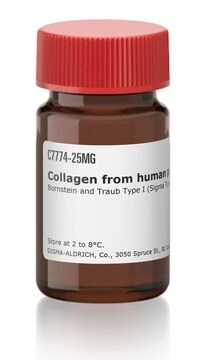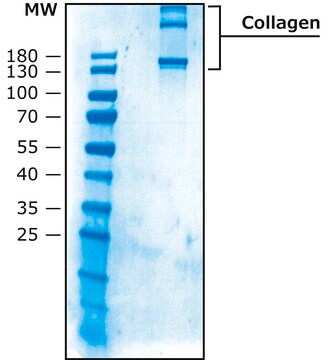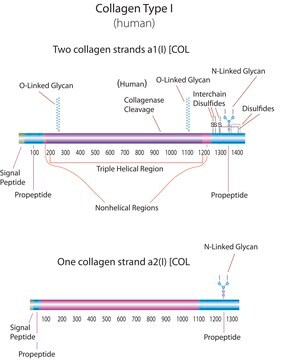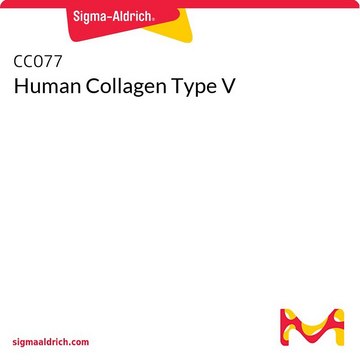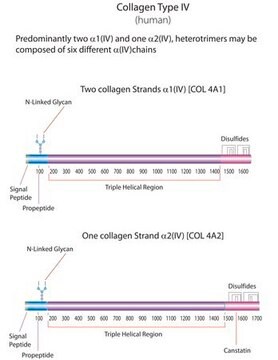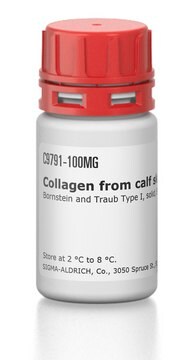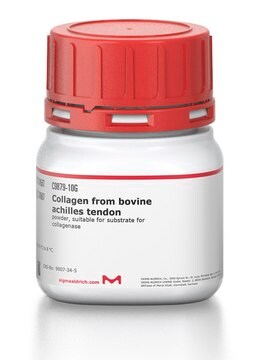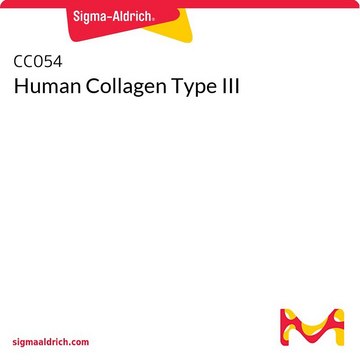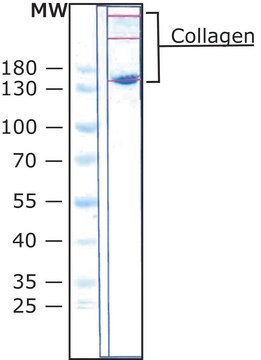C3657
Human Collagen Type V
from human placenta, powder, suitable for detection assays
About This Item
Recommended Products
Product Name
Collagen from human placenta, Bornstein and Traub Type V (Sigma Type IX), powder
biological source
human placenta
Quality Level
form
powder
impurities
HIV, hepatitis B and hepatitis C, none detected
solubility
aqueous acid: soluble
UniProt accession no.
application(s)
detection
storage temp.
2-8°C
Gene Information
human ... COL5A1(1289)
Looking for similar products? Visit Product Comparison Guide
Components
Caution
Preparation Note
Analysis Note
Other Notes
Storage Class Code
11 - Combustible Solids
WGK
WGK 1
Flash Point(F)
Not applicable
Flash Point(C)
Not applicable
Personal Protective Equipment
Choose from one of the most recent versions:
Certificates of Analysis (COA)
Don't see the Right Version?
If you require a particular version, you can look up a specific certificate by the Lot or Batch number.
Already Own This Product?
Find documentation for the products that you have recently purchased in the Document Library.
Customers Also Viewed
Our team of scientists has experience in all areas of research including Life Science, Material Science, Chemical Synthesis, Chromatography, Analytical and many others.
Contact Technical Service